User-centric design for a global remittance platform
Rokkex
Crypto-currency trading platform UX UI design
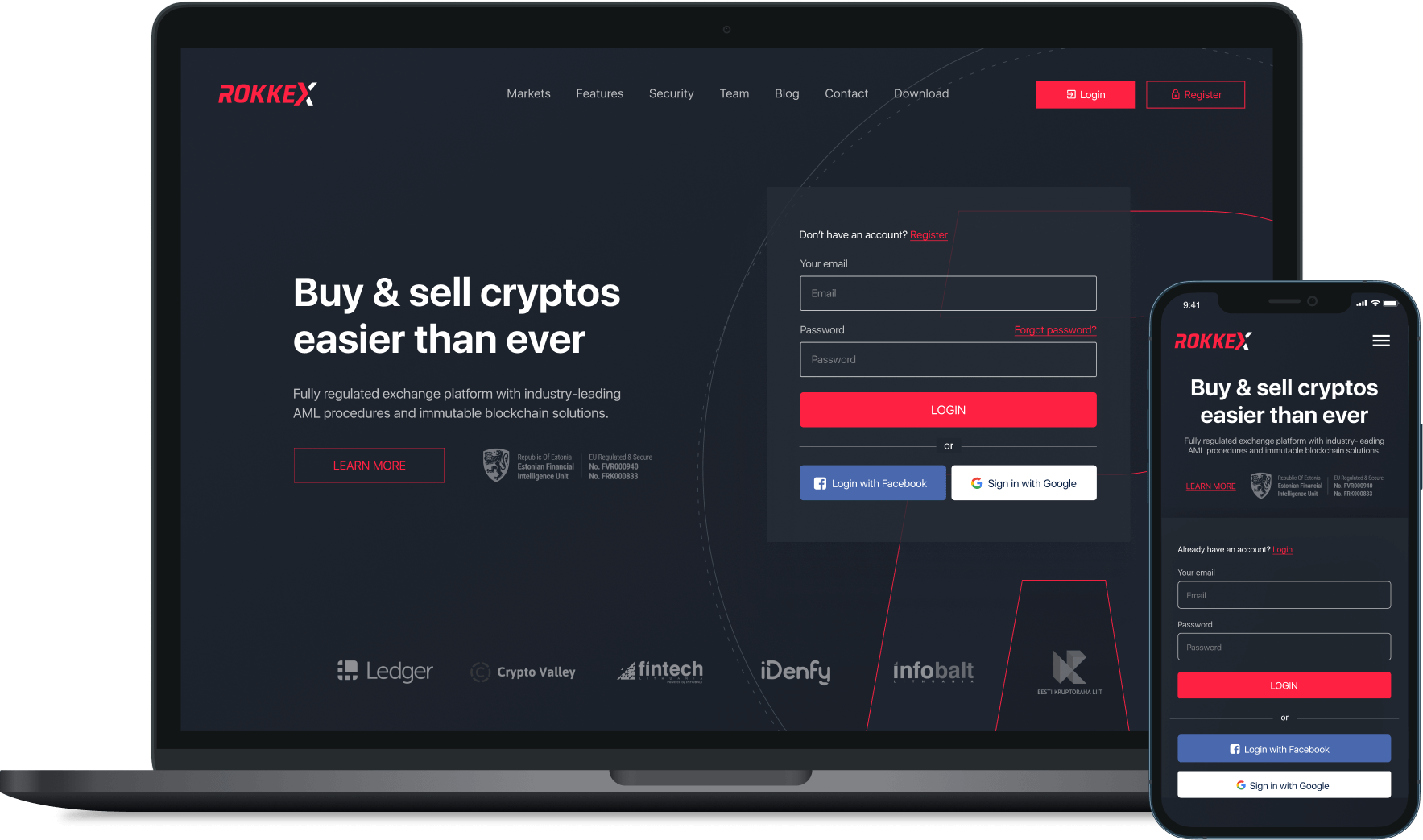
ROKKEX is a cryptocurrency trading platform designed for novice and experienced traders who need a secure and reliable environment. Unlike many competitors, ROKKEX places a strong focus on cybersecurity, ensuring safe transactions while maintaining fast execution speeds and low withdrawal fees.
While ROKKEX aimed to differentiate itself through security, it faced key UX challenges common in cryptocurrency trading platforms:
Complexity and information overload
Many platforms overwhelm users with excessive data and unclear interfaces.
Transaction friction
Users struggle with wallet management, private/public key handling, and transaction fees.
Onboarding difficulties
Lengthy KYC and registration processes often lead to high drop-off rates.
The project aimed to:
Simplify the onboarding process to retain new users.
Improve UI clarity by structuring trading information efficiently.
Optimise transaction workflows for deposits, withdrawals, and trades.
Ensure security integration without compromising usability.
Develop a tiered trading experience suitable for both beginner and advanced traders.
Understanding the Users
Key findings:
- Speed matters: Users expect instant transactions and real-time updates.
- Security must be visible: Users feel safer when protective measures (e.g., multi-factor authentication) are clearly communicated.
- Simple vs. advanced trading modes: Beginners need simplified order forms, while experienced traders require detailed charting tools.
User pain points
Traders face difficulties with cryptocurrency exchanges due to complex interfaces, slow onboarding, unclear security measures, and a lack of real-time support.
What users needed
An intuitive, secure, and efficient trading platform that simplifies onboarding, enhances order execution, and provides clear guidance on transactions and security best practices.
Research methods included:

Security audits
Ensured the UX prioritised trust and transparency without sacrificing usability.

Competitor analysis
Compared ROKKEX with industry leaders to identify best practices and gaps.

User interviews
Spoke with traders of varying experience levels to assess pain points.
Combining the Insights
Based on the evaluations, we prioritised actionable strategies for design and optimisation:
- Retention optimisation: Redesigned recipient screens and onboarding flows for better engagement.
- Product expansion: Introduced a wallet app concept to broaden service offerings and improve usability.
- Experience improvement: Focused on modernising flows and enhancing user satisfaction through thoughtful copywriting.
- Prototyping: Created interactive prototypes to validate user flows, ensuring that they addressed pain points and aligned with user expectations.
Design – Building the Solution
Based on research, I streamlined KYC for easier onboarding, added progress indicators, and redesigned the trading dashboard with beginner and advanced modes. Order book readability was improved, and deposit/withdrawal flows were clarified with security warnings and real-time fee calculations. Security best practices were highlighted with a protection score indicator. Prototypes were tested iteratively, refining features based on user feedback.
Web app UX/UI Design
- Onboarding: Step-by-step account setup, simplified KYC process, and security recommendations for safe trading.
- Trading experience: Simple mode for beginners, advanced mode with depth charts and custom orders, and real-time transaction tracking.
- Wallet and transactions: Redesigned wallet dashboard, intuitive deposit/withdrawal flows, and security-first fund storage guidance.
- Additional features: Markets overview for asset tracking, user profile dashboard with security settings, verification levels, and API management.
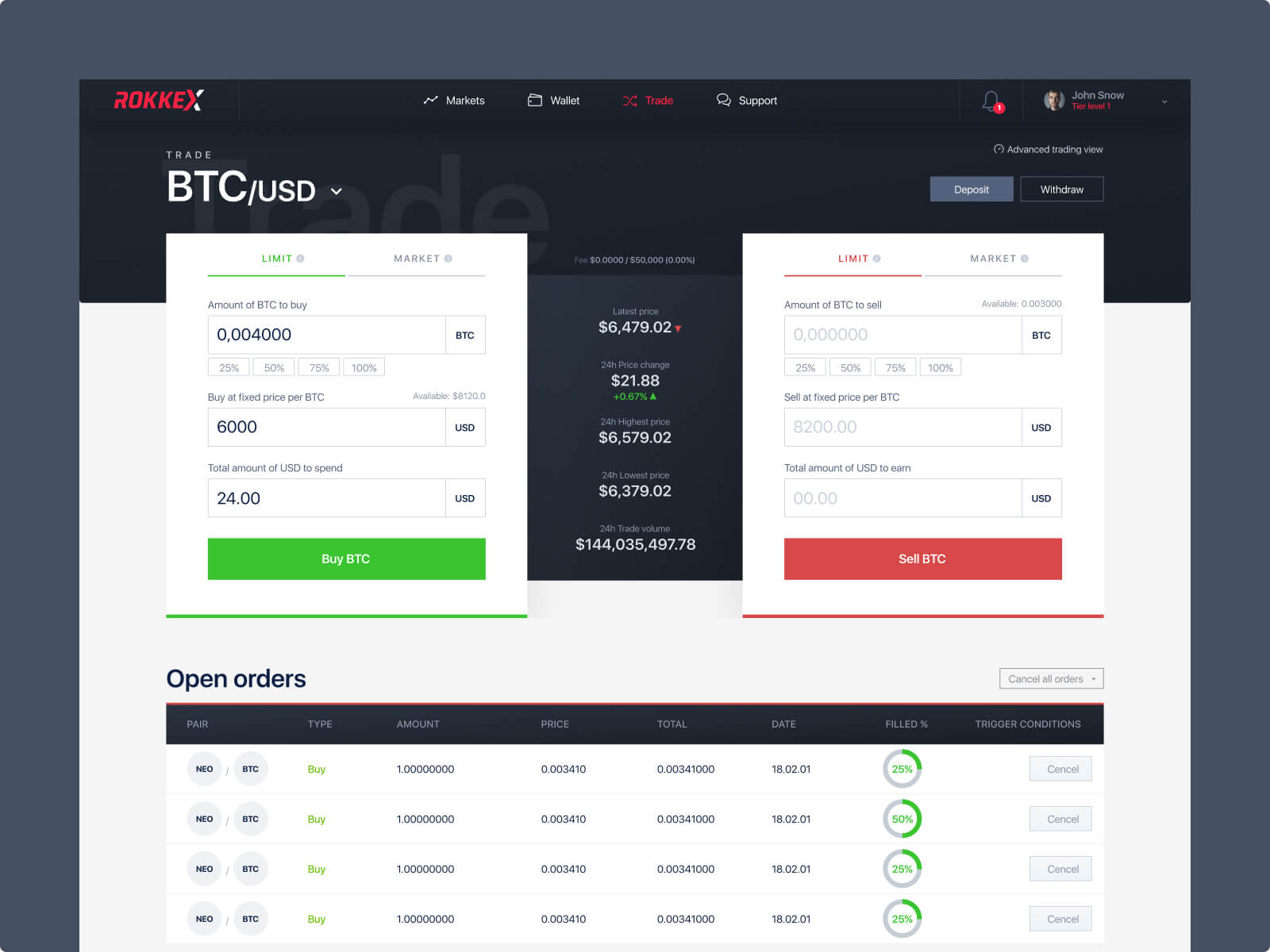
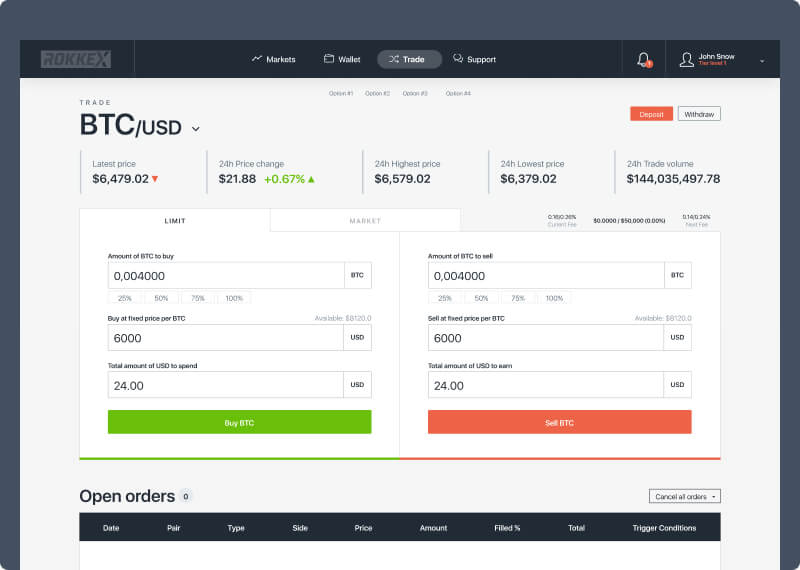
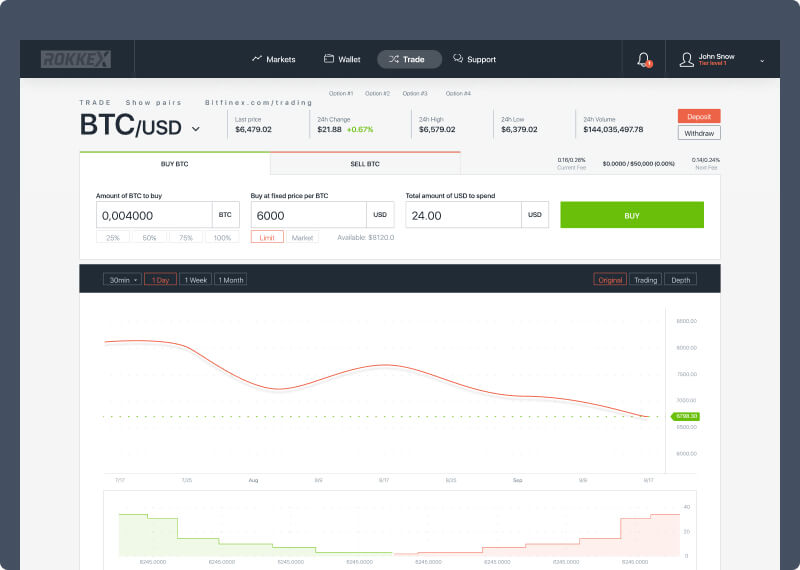
Advance trading view
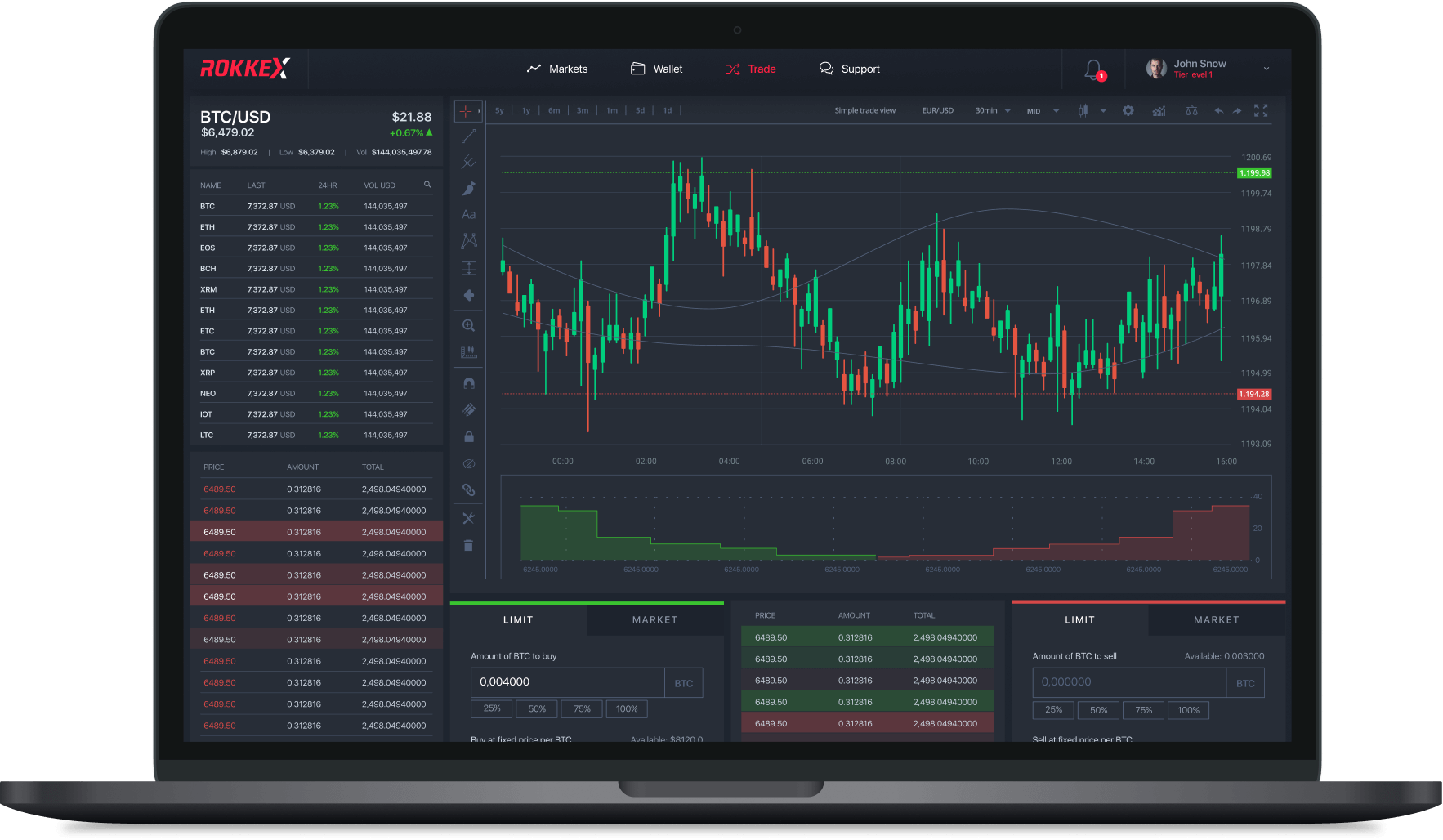

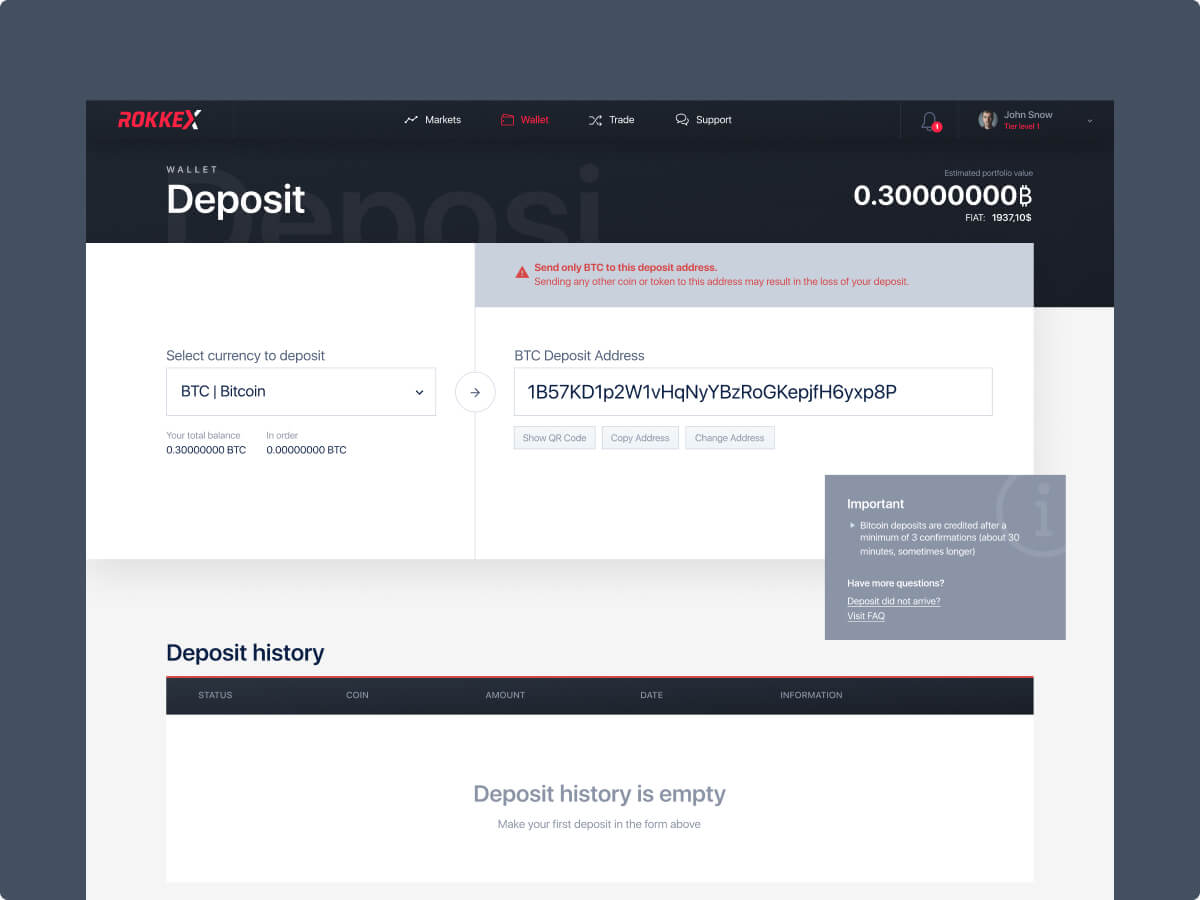


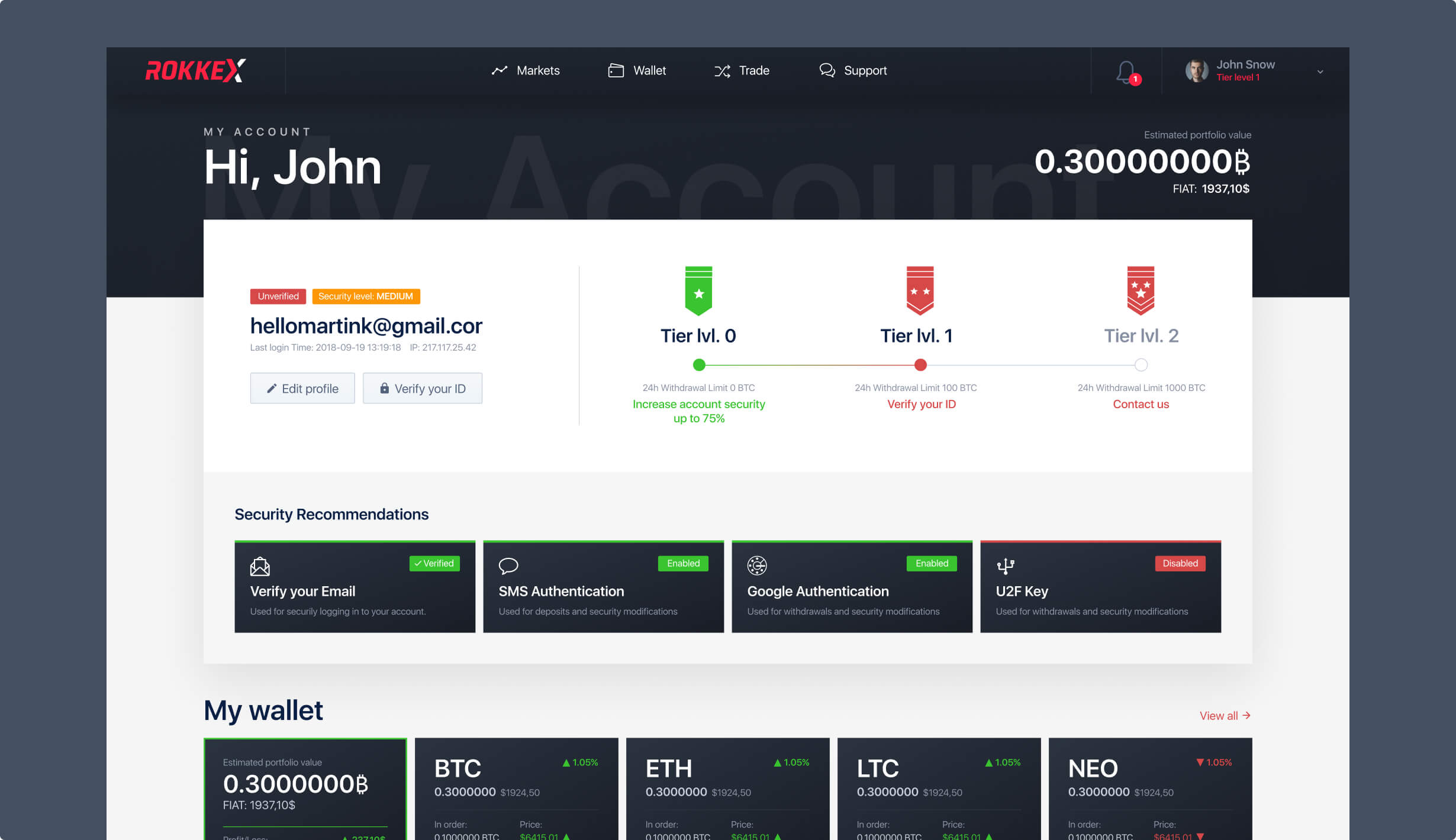
Quantitative Outcomes
30%
Faster onboarding
Reduced friction in registration and KYC processes.
25%
Increase in trade execution efficiency
Optimised UI speed and performance.
50%
Higher retention rates
More users completed their first trade within 24 hours of signup.
Qualitative Feedback
Traders:
“Finally, a trading platform that doesn’t feel overwhelming.”
“I love that I can switch between simple and advanced modes.”
Stakeholders:
“Security is a selling point, but we needed a UX that made it accessible. The redesign achieved that.”
Key Takeaways
This project demonstrated the importance of balancing security with usability in financial applications. By prioritising user-friendly workflows, transparent security measures, and a performance-driven UI, we created a highly adoptable trading platform that met both user and business needs.